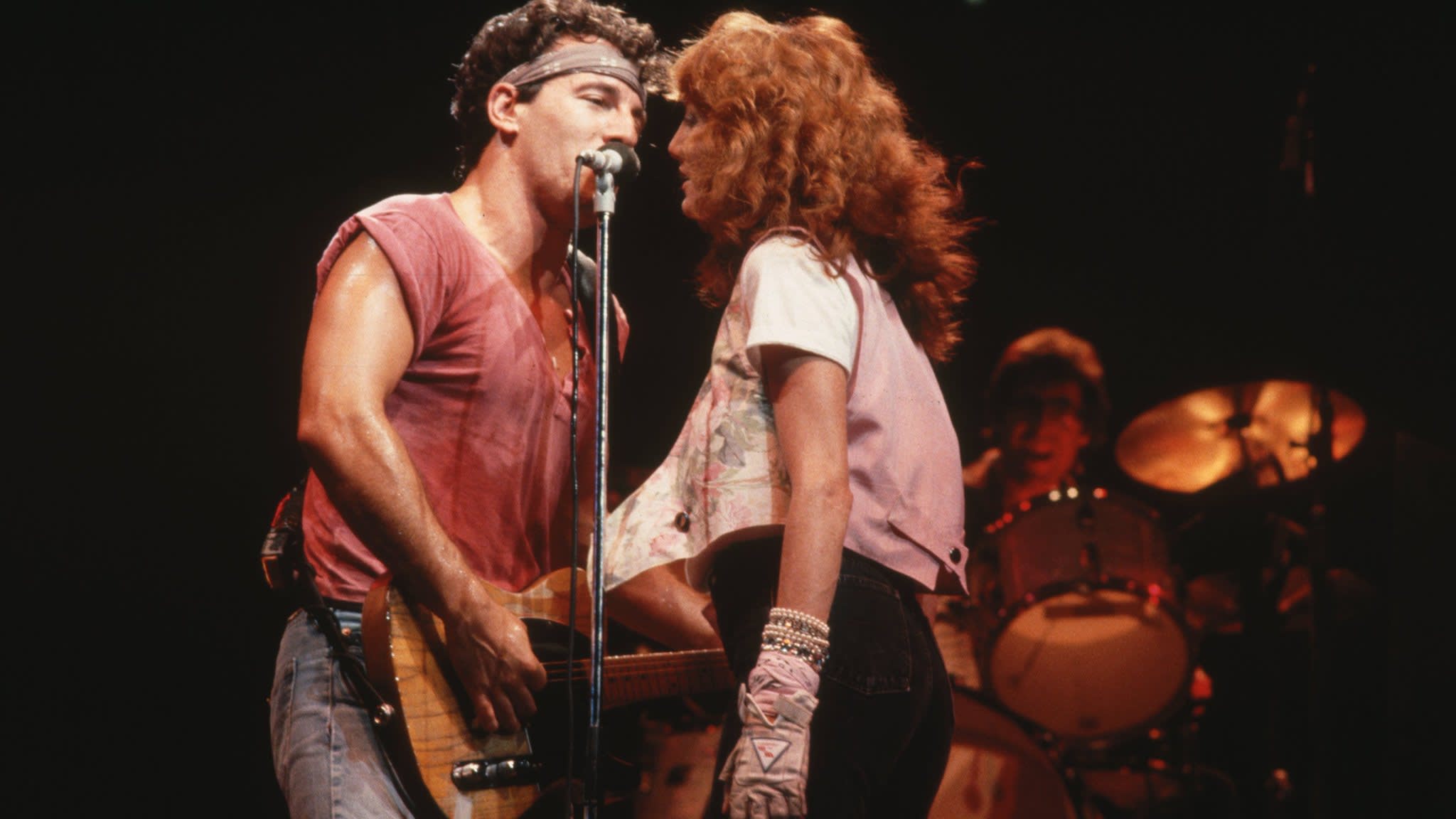Tougher Than The Rest Lyrics
Songwriters: BRUCE SPRINGSTEEN
Tougher Than The Rest lyrics © Downtown Music Publishing
Well it's Saturday night
You're all dressed up in blue
I been watching you awhile
Maybe you been watching me too
So somebody ran out
Left somebody's heart in a mess
Well if you're looking for love
Honey I'm tougher than the rest
Some girls they want a handsome Dan
Or some good-lookin' Joe, on their arm
Some girls like a sweet-talkin' Romeo
Well 'round here baby
I learned you get what you can get
So if you're rough enough for love
Honey I'm tougher than the rest
The road is dark
And it's a thin thin line
But I want you to know I'll walk it for you any time
Maybe your other boyfriends
Couldn't pass the test
Well if you're rough and ready for love
Honey I'm tougher than the rest
Well it ain't no secret
I've been around a time or two
Well I don't know baby maybe you've been around too
Well there's another dance
All you gotta do is say yes
And if you're rough and ready for love
Honey I'm tougher than the rest
If you're rough enough for love
Baby I'm tougher than the rest
"Tougher Than the Rest" is a song by Bruce Springsteen from his 1987 Tunnel of Love album. It was released as a single in some countries, following "Brilliant Disguise" and the title track, but was not released as a single in the United States.[1] It reached as high as No. 3 on the Swiss charts, and also reached the Top 20 in the United Kingdom, the Netherlands and Austria.
History
Like much of the Tunnel of Love album, "Tougher Than the Rest" was recorded in Springsteen's home studio, called Thrill Hill East, between January and May 1987 with several members of the E Street Band. On this song, Springsteen played several instruments and is backed by Danny Federici on organ and Max Weinberg on percussion. Although it was originally written as a rockabilly song, the final version has a slower and more methodical rhythm.
On the Tunnel of Love album, "Tougher Than the Rest" is the second song, following the acoustic "Ain't Got You", and introduces the sound that will permeate the remainder of the album.The synthesizer sound is layered and melodic and the drum sound is moody, heavy and menacing[ Springsteen's vocal is also menacing and boastful as he sings the simple but elegant lyrics detailing his infatuation.
At least one of the singer and the woman he is singing to appear to be on the rebound from prior relationships. The singer recognizes that he is not a "handsome Dan" or a "sweet talking Romeo" and admits that he has "been around a time or two". He is not bothered with the possibility that the woman may have "been around too."Although the singer knows how messy and rough love can be, he claims that he is ready for it, but insists that the woman must also be equally tough and willing to take chances. The song is in some ways reminiscent of Springsteen's earlier song "Thunder Road", in which the singer wants to take the woman away, even though he tells her that "you ain't a beauty but hey you're alright". But unlike the earlier song, in this song the singer's goals are more realistic – rather than looking to run away with the woman, here he just wants to ask the woman to dance.[ In the context of this song the phrase, 'There's another dance, all you have to do is say yes,' is an allusion to taking a chance and falling in love. This is echoed in the song 'Girls in their Summer Clothes' which includes the line 'Love's a fools' dance, I ain't got no sense, but I've still got my feet.'
The music video features live concert footage interspersed with vignettes of couples made at venues on his "Tunnel of Love Express" tour. The video includes both gay and lesbian pairs interspersed with heterosexual couples as representatives of the artist's fans. Springsteen included this explicitly homosexual imagery with neither fanfare nor exploitation. Like several other music videos from the Tunnel of Love album, including "Brilliant Disguise", "Tunnel of Love" and "One Step Up", the video for "Tougher Than The Rest" was directed by Meiert Avis. The video was later released on the VHS and DVD Video Anthology / 1978-88.

"Tougher Than the Rest" has been reasonably popular in live performances. Next to Brilliant Disguise and the title track, this song is third and only other song from the album to receive several appearances live. From the Tunnel of Love Express Tour (where it typically opened the second set) that supported the initial release of the album through July 2005, the song received 98 live performances in concert.[13] A live version of the song, recorded on April 27, 1988 at Los Angeles Memorial Sports Arena was released on the EP Chimes of Freedom. That version runs 6:39.
